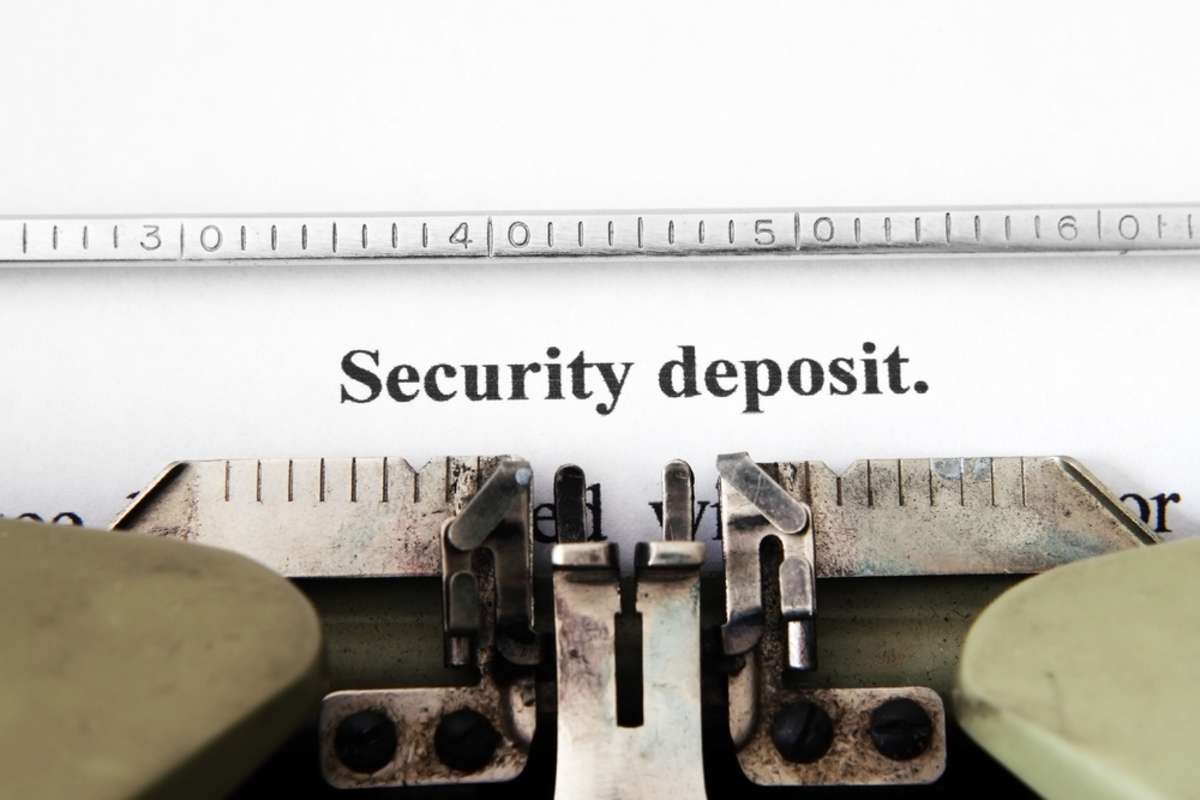Many property owners know that they must follow the law when processing the security deposit when a tenant moves out, but are there also rules for collecting it before they move in? Here’s what you need to know about a tenant's security deposit and a residential lease agreement.
Make Sure the Deposit Amount and Due Date Are Clear in the Lease
A lease agreement is arguably the most important legal document when renting out a residential property. When it comes to the security deposit, property owners must be sure to include specific details in the lease. These items include the deposit amount and the due date.

Property owners can customize the security deposit clause in the lease agreement. However, you must follow the relevant laws governing security deposit collection and how much you can collect.
Having everything in writing helps your renters understand the amount, the process for collection, and what happens to the deposit if they break the lease or leave damage in the rental unit after moving out. When both parties understand the applicable rules and policies, it's easier to avoid misunderstandings. Experiencing fewer issues during a tenancy helps property owners maintain good relationships with renters in Lynnwood!
Include Rules for Maintaining the Property
Before renters move into a rental unit, they should know what is expected of them. Make sure your tenants understand their responsibilities in terms of maintaining the property (and how failing to meet those requirements could impact the security deposit at the end of the lease term.
Residents should agree to keep the property in a clean and habitable condition according to the residential lease terms. They should also inform you in case of issues that negatively impact the value of the property, like maintenance issues or items that need repair. Lastly, renters must keep the lawn and landscaping well-maintained year-round.
With these details clearly outlined in the contract, property owners have the documentation to enforce the lease—including withholding some or all of the security deposit if a tenant fails to comply with the agreement.
Even if you rely on a simple lease agreement document, the security deposit clause should cover issues such as how you will store the money, reasons you can keep part of the security deposit, and the process of returning it. Consider consulting an experienced property manager in Lynwood and your attorney to be sure the document includes the right details.
Collect the Deposit Separately from the Rent
When calculating the security deposit for your property, consider the state laws, the monthly rent, the type and quality of the rental units, and the security deposits of similar properties. Then, when collecting the deposit before new renters move in, be sure to keep it separate from the monthly rent amount and due date.
Rental property owners should collect the deposit is collected at the beginning of the tenancy and keep the funds in an account separate from a primary business account. These are two main reasons why you should collect these payments separately. First, most state laws regulate how security deposits are handled. Second, collecting separate payments will make it easier to track security deposits and rent payments for tax purposes and to comply with landlord-tenant laws.
Wait Until the Lease is Signed to Collect the Deposit
Generally, a tenant who gives a security deposit but does not sign a lease or move into a rental unit is entitled to their entire deposit back. Similarly, you have the right to lease out a unit until the time a rental agreement has been signed, which is why you should collect the security deposit only after the lease is signed.

Make sure this information is clearly captured in the residential lease agreement. Once you receive the security deposit, it's okay to hand over the keys to your new tenant.
Hire a Lynnwood Property Management Company to Handle Security Deposits
Without expertise and experience, managing rental properties can be a challenging undertaking. You may end up making costly mistakes that could threaten the success of your real estate investment portfolio. However, hiring a qualified property manager will help to ensure that every task is done correctly, including collecting, storing, and handling the security deposit.
The right property management professional handles leasing and security deposits for you, allowing you to focus on growing your portfolio and spending time on things you love to do. If you're not sure about the rules surrounding security deposits or how to make sure your lease agreement protects your investments, reach out to The Joseph Group! We're to help you make more money through your rental properties.



